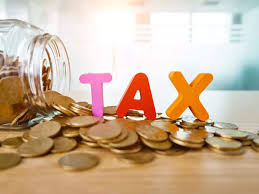The Income Tax Department on Wednesday gave details of ‘Frequently Asked Questions’ (FAQ) on the changes made in the Capital Gains Tax and said that the thinking behind this is to simplify the structure and make compliance easier. The Income Tax Department said in the FAQ that the holding period for various asset classes has been rationalized for the purpose of short-term and long-term capital gains tax. In the case of long-term capital gains tax (LTCG), now the period for holding all listed assets will be one year.

Holding period reduced
Therefore, the holding period has been reduced from 36 months to 12 months in respect of listed units of business trusts (REITs, InvITs). According to the Income Tax Department, the holding period of gold and unlisted securities (other than unlisted shares) for calculation of LTCG has also been reduced from 36 months to 24 months. However, the holding period of immovable property and unlisted shares will remain 24 months as before. The Income Tax Department said in the FAQ, “Simplification of any tax structure eases compliance such as calculation, filing, maintenance of records. This also eliminates different rates for different types of assets.” What is the new tax rate? The short-term capital gains tax rate on listed shares, equity-focused mutual funds and units of business trusts has been increased from 15 percent to 20 percent from July 23. Similarly, the capital gains tax rate for these assets in the long term has been increased from 10 percent to 12.5 percent. However, the exemption limit in case of long-term gains on these assets has been increased from Rs 1 lakh to Rs 1.25 lakh. According to the FAQ, there has been no change in the short-term capital gains tax (STCG) on assets like gold, immovable property and listed and unlisted bonds and debentures and they will be taxed as per slab rates. As far as LTCG is concerned, it will be 12.5 percent for most asset classes. Only in the case of unlisted bonds and debentures, long-term capital gains will be taxed as per slab rates.

Real estate will not get the benefit of indexation
Along with this, the Income Tax Department made it clear that the real estate sector will no longer get the benefit of indexation on property sales. Under the ‘indexation’ system, the purchase price of investments like houses is adjusted in such a way that the effect of inflation is visible on such assets. The department said, “All categories of assets will benefit from the reduction in tax rates. In most cases, taxpayers will benefit a lot. But in some cases, property owners will get limited benefit in case the benefit is less than inflation.”




